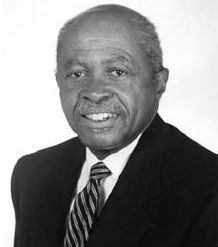Bringing PCs to everyone
Computer science pioneer Roy L. Clay Sr. helped engineer today’s personal computer as a leader in the development of Hewlett-Packard computer divisions. In the 1960 and 1970s, Clay ran the company’s first computer division and oversaw all computer-related research and development.
Establishing the foundation of today’s freewheeling personal computers seems a far cry from Clay’s oppressive upbringing in the Jim Crow South, growing up in Kinloch, Missouri, a predominantly black town adjacent to Ferguson (a town now famously in the news for its persistent unequal treatment of black residents). Clay recalls once as a teenager, while doing some gardening work one summer to earn some extra cash, he was harassed by Ferguson police officers, who told him to never show his face in town again. But he didn’t let that incident stop him, in part thanks to his mother, who told him, “Never let racism be a reason you do not succeed.”
He went on to become one of the first African Americans to graduate from St. Louis University. Clay quickly began building operating systems, developing a Fortran compiler at Control Data Corp. that made computers more user-friendly. At Hewlett Packard, Clay led the team that engineered HP’s entrance into the computer market with the development of the 2116A computer in 1966.
During his tenure at HP, Clay also established programs to help more African Americans get into Silicon Valley. When he forged out on his own to form his own company ROD-L Electronics (which became a world leader in electrical safety testing equipment), he also became at one point the largest employer of African American professionals in Silicon Valley.
Whether as a tech innovator or equality advocate, Clay will always be remembered as a champion for invention and creativity for all, no matter who you are.















